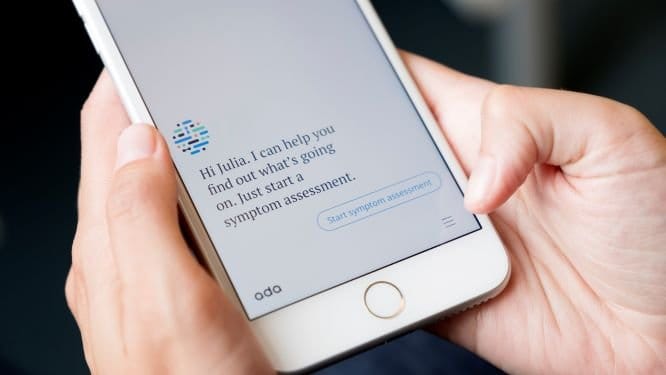It doesn’t take an artificial intelligence-powered symptom checker to diagnose Ada Health with what is clearly a serious case of fundraising fever.
Less than a year after rounding up $90 million in a series B funding round that was led by Leaps by Bayer, the Big Pharma’s investment arm, Ada has added another $30 million to the financing, courtesy of Farallon Capital, Red River West and Bertelsmann Investments.
The new additions bring the round’s total to $120 million, which Ada CEO Daniel Nathrath said will help expand the footprint of the Berlin-based company and its symptom assessment tool in “key geographies” like the U.S. Ada will also use the extended funding to forge new partnerships and continue fine-tuning its AI-based app.
“COVID-19 has highlighted the need for greater, faster change within healthcare, and we are seeing a growing demand from health systems, insurers and life sciences organizations for innovative ways to help transform health journeys and drive better outcomes for patients, clinicians and providers,” Nathrath said.
Alongside the $30 million series B extension, Ada also added Schroders Capital to its cadre of backers, after the U.K.-based investor purchased secondary shares of the company totaling more than $30 million.
“We are at the watershed of a major shift in healthcare, as innovative digital solutions support better health outcomes and clinical excellence with intelligent technology,” said Vahit Alili, investment director in Schroders’ private equity division.
“Ada Health’s technology is a rare proposition which delivers against all components of the iron triangle of healthcare: improving access to reliable healthcare, improving the quality of care through earlier diagnosis and better outcomes, while simultaneously helping to save cost by removing inefficiencies in patient care navigation,” Alili said.
Ada’s free smartphone app guides users through a series of questions about their symptoms, using AI to tailor follow-up questions and compile a list of possible health conditions based on each answer. The technology is based on a huge library of medical information, which has been used to train the AI to recognize the subtle differences between conditions that may present with similar symptoms.
The list of possible conditions churned out by the app is meant to serve not as a definitive diagnosis, but as a jumping-off point to help users better understand what may be causing their symptoms and direct them to an appropriate healthcare provider.
In recent months, Ada has inked deals with Bayer, Novartis, Sanofi and more, all with a goal of speeding up the time it takes for the app’s users to find an accurate diagnosis and begin treatment with its Big Pharma partners’ therapeutics.

